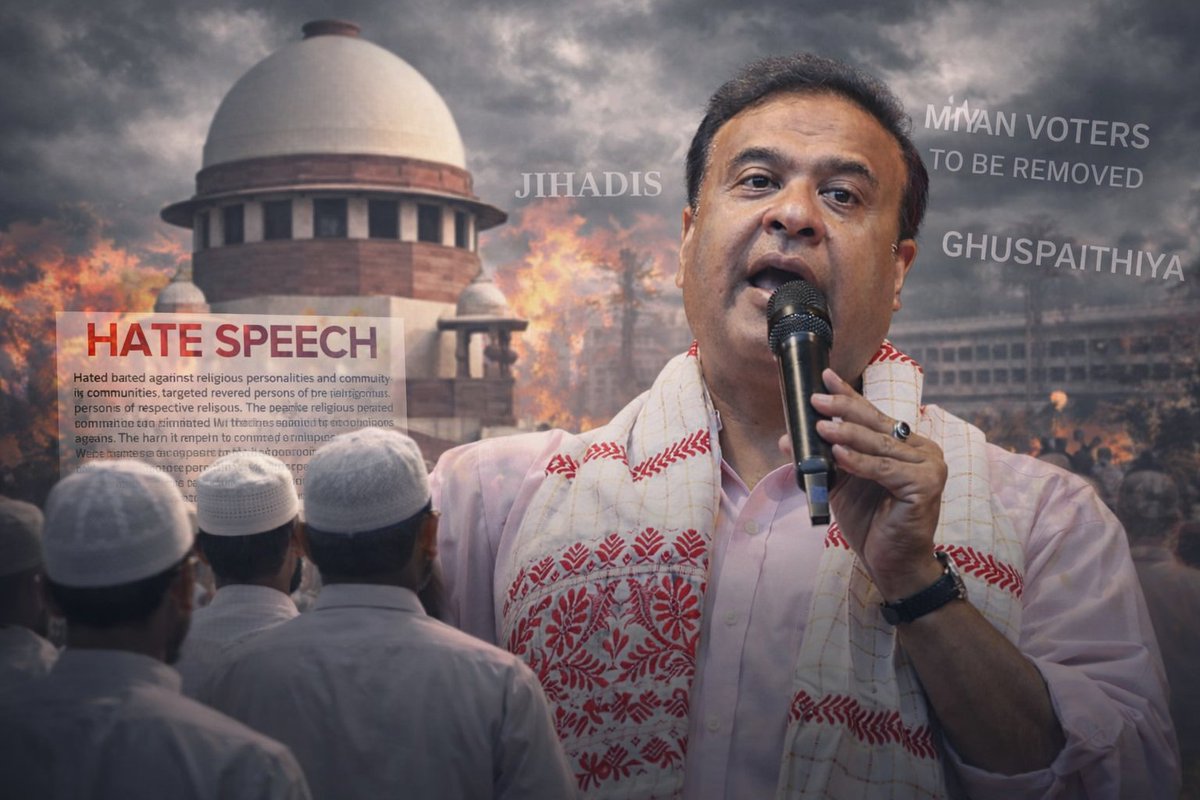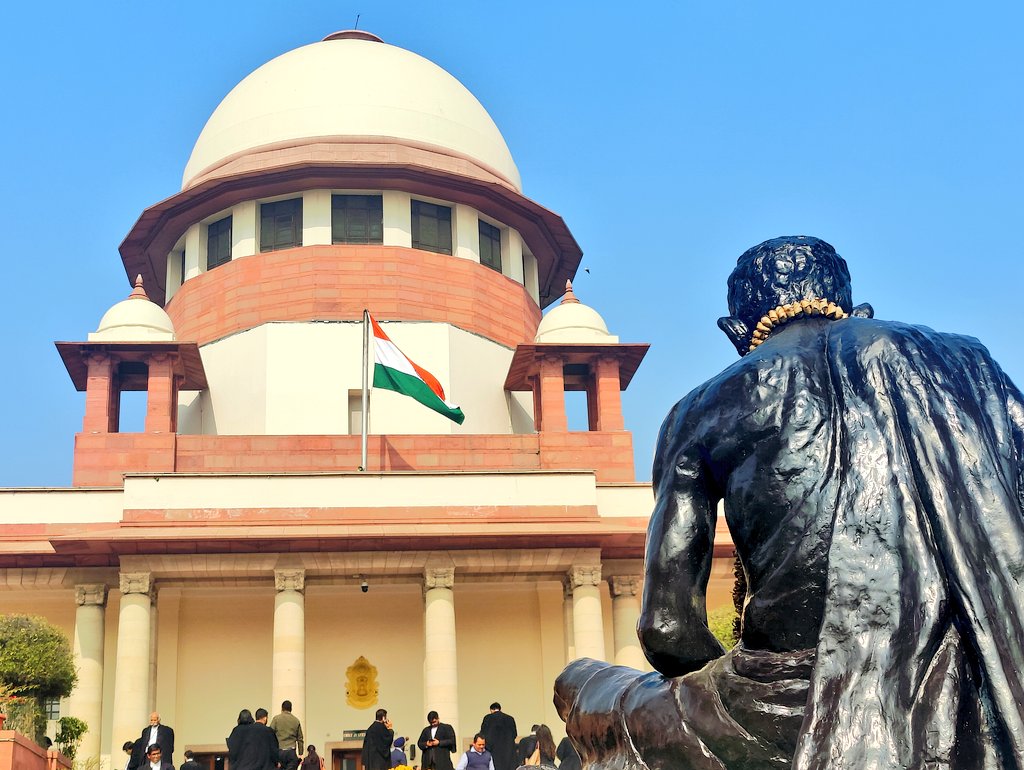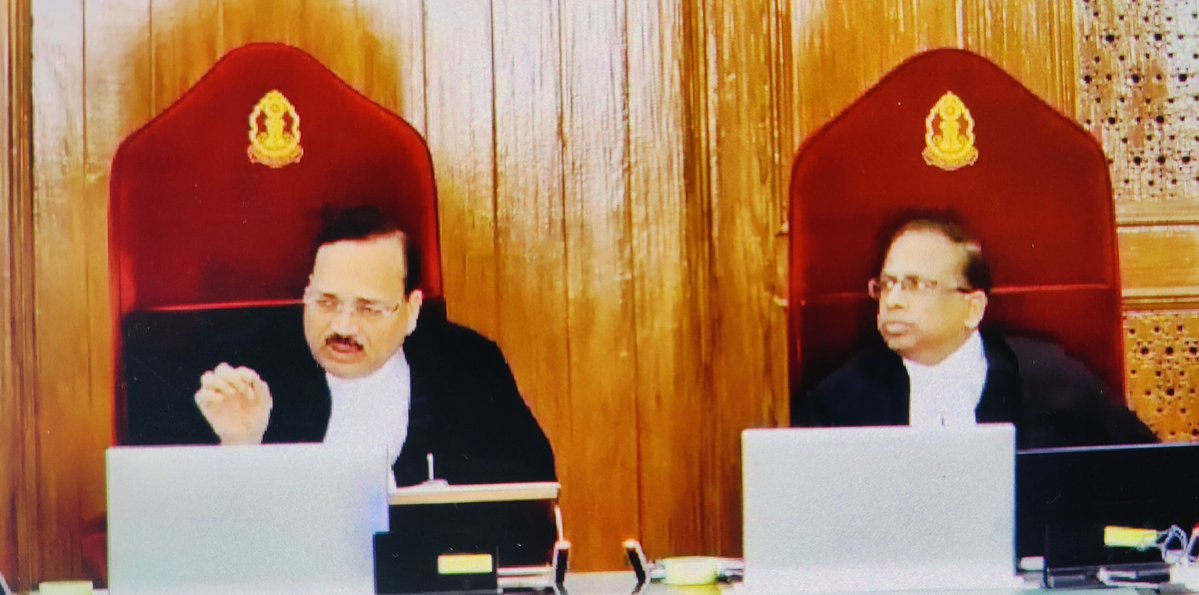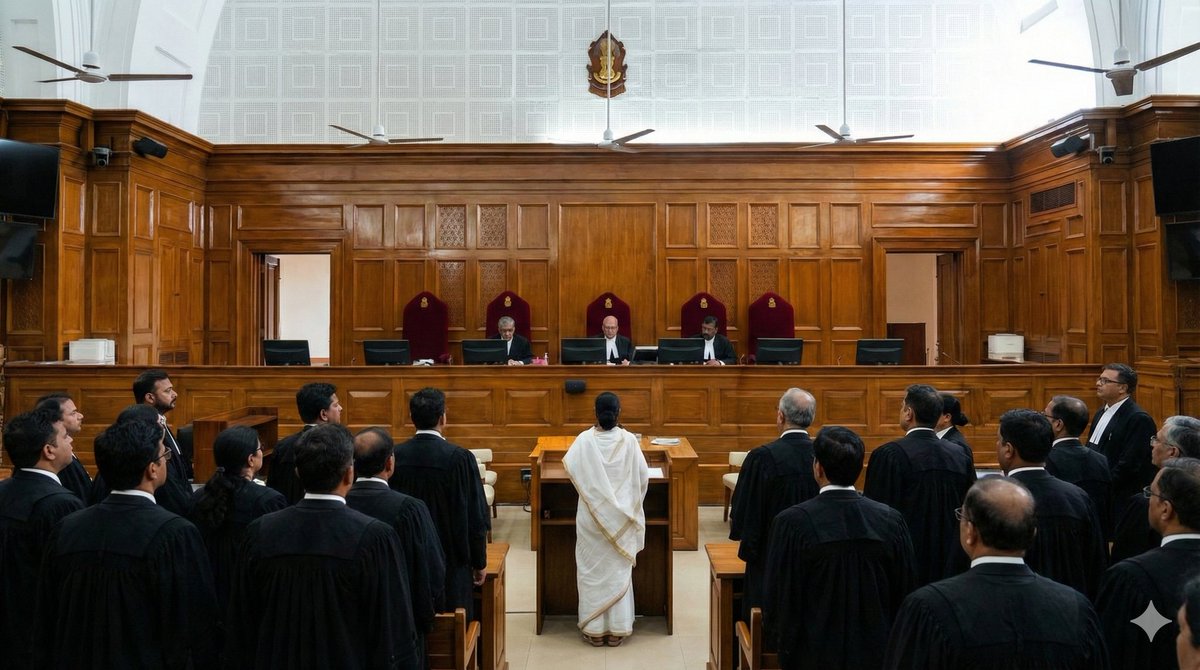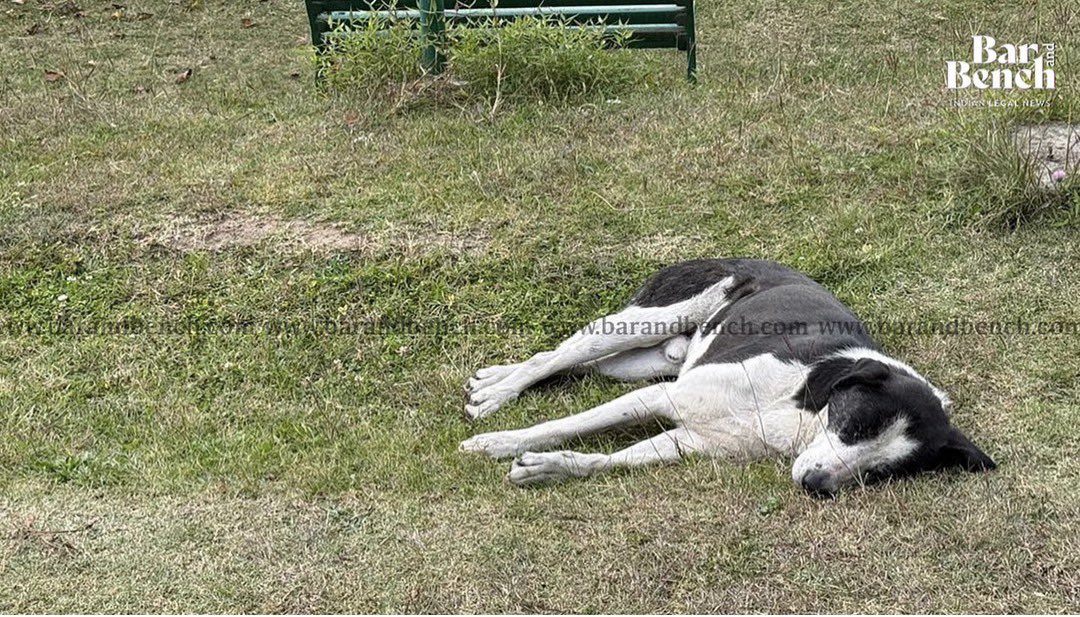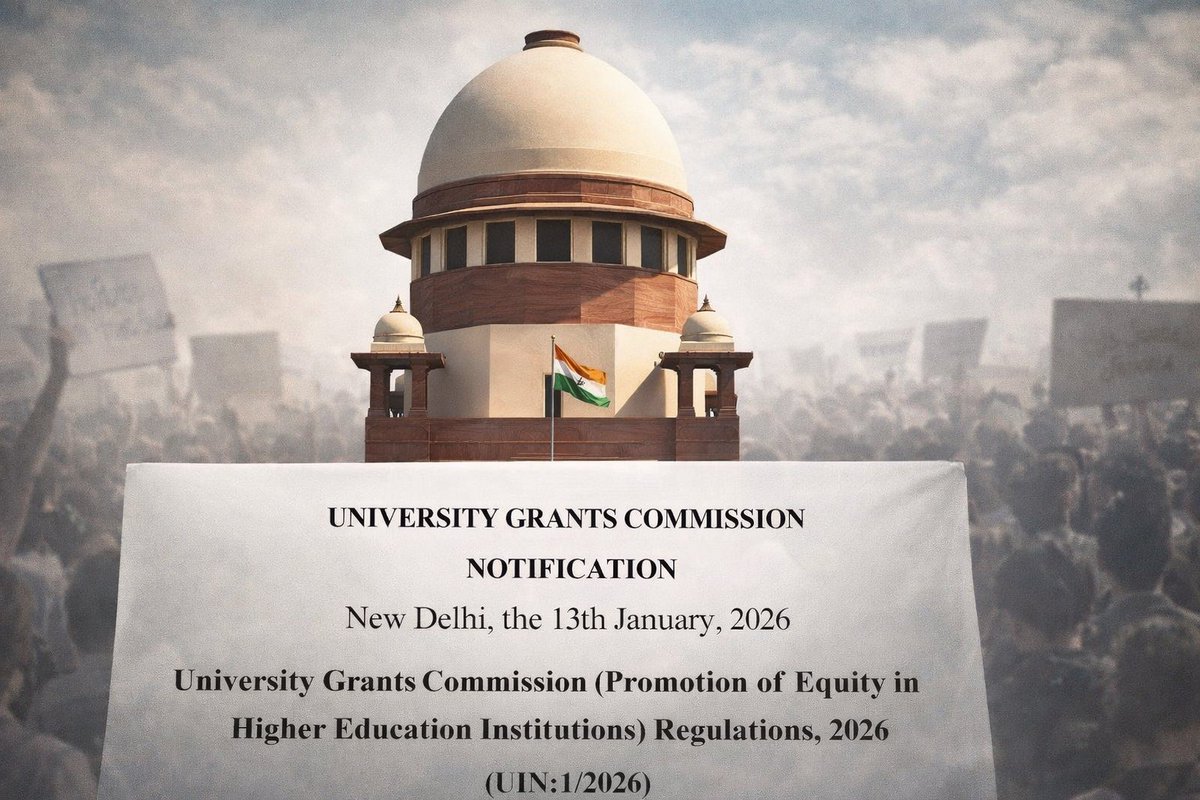Supreme Court Bench headed by Justice L Nageswara Rao is scheduled to take up for hearing today a batch of matters concerning the appointments to Tribunals as well as a challenge to the 2020 Tribunal Rules.
#SupremeCourt
#SupremeCourt

Hearing begins.
AG Attorney General appears on screen.
Justice L Nageswara Rao: Attorney, are you okay?
AG (who was in self isolation) responds he is well.
AG Attorney General appears on screen.
Justice L Nageswara Rao: Attorney, are you okay?
AG (who was in self isolation) responds he is well.
Bench to hear the petition filed by Madras Bar Association assailing the 2020 Tribunals rules first.
Senior Advocate Arvind Datar for Madras Bar Association asked to address the Court first.
#SupremeCourt
#Tribunal
Senior Advocate Arvind Datar for Madras Bar Association asked to address the Court first.
#SupremeCourt
#Tribunal
Datar tells the Court: Justice Manmohan Singh's tenure as IPAB Chairman is expiring on September 17.
#SupremeCourt
#Tribunals
#SupremeCourt
#Tribunals
Bench passes over the entire clutch of matters for the end of Board.
Justice L Nageswara Rao: We will hear all the other misc matters on board and then come back these applications.
#SupremeCourt
Justice L Nageswara Rao: We will hear all the other misc matters on board and then come back these applications.
#SupremeCourt
Bench of Justices L Nageswara Rao, Hemant Gupta and S Ravindra Bhat take up the matters for hearing now.
SC asks if the Writ petition challenging the 2020 Rules be taken up first or applications for filling up of vacancies in Tribunals be taken up first
SC asks if the Writ petition challenging the 2020 Rules be taken up first or applications for filling up of vacancies in Tribunals be taken up first
Justice Rao: The decision on the Writ petition may lead to answering the questions raised in the applications also.
Datar agrees and says that the applicability of the new Rules may also be answered when the Writ filed by Madras Bar Association is heard and decided.
Datar agrees and says that the applicability of the new Rules may also be answered when the Writ filed by Madras Bar Association is heard and decided.
Datar: If the Rules are are upheld then the consequences may be different but if the Rules are struck down then the applications may not be needed to be heard.
Senior Advocate Aryama Sundaram says that the eligibility of persons to be appointed is also affected.
Justice Nageswara Rao: That is why the question is whether the Writ petition be heard first or applications.
Justice Nageswara Rao: That is why the question is whether the Writ petition be heard first or applications.
After indicating that the SC will hear the Madras Bar Association petition first, Bench asks how long the case would take for the completion of arguments.
#SupremeCourt
#SupremeCourt
Datar: It will not take much time. Most of the points are covered by the Supreme Court's judgments in Rojer Mathew and the previous judgment in Madras Bar Association case.
AG KK Venugopal: It may take some time... Mr. Datar appears very optimistic.
(all laugh)
AG KK Venugopal: It may take some time... Mr. Datar appears very optimistic.
(all laugh)
Court agrees to begin hearing the petition by Madras Bar Association first.
The hearing may continue even tomorrow should there be a spillover on account of a number of Respondents.
#SupremeCourt
The hearing may continue even tomorrow should there be a spillover on account of a number of Respondents.
#SupremeCourt
Senior Advocate Arvind Datar for Madras Bar Association begins to make his submissions.
Datar begins by giving a background of cases on the issues of Tribunalisation; refers to the judgment of 5-Judges delivered in 2010 where certain guidelines were laid down.
Datar begins by giving a background of cases on the issues of Tribunalisation; refers to the judgment of 5-Judges delivered in 2010 where certain guidelines were laid down.
Datar: Something strange happened in 2017 under the Finance Bill. The issue of Tribunalisation came to be taken with the Rojer Mathew case where the issue of Tribunalisation was considered.
Datar: In the concurring judgment in the Rojer Mathew case, Justice DY Chandrachud emphasized the need for the independence of Tribunals.
The 2017 Tribunal Rules were struck down but many people came to be appointed under these Rules which were held to be unconstitutional.
The 2017 Tribunal Rules were struck down but many people came to be appointed under these Rules which were held to be unconstitutional.
Datar: I'm very sorry to say that in the new Rules, according to Supreme Court's judgment in Rojer Mathew, the new 2020 Rules could have provided for a tenure of 5 years. But they put in 4 years.
Datar: Second ground of challenge is that a member of Indian legal service becomes a judicial member. For instance a member of the Indian Legal Services can directly become the Chairman of the DRAT, similarly in ITAT and others.
Datar takes the Court through the qualifications needed for persons to be appointed as judicial members of the Tribunals.
Hearing resumes.
Datar continues to address the point on qualification of the members of the Tribunal.
Datar continues to address the point on qualification of the members of the Tribunal.
Datar referring to the composition of the search and selection committee, says that "we're looking not only at the independence of the Judiciary, but of quasi-judicial bodies also"
Datar: My humble submission is that Para 4 of the 2020 Rules need to be struck down. When the selection committee goes, the entire Rules (of 2020) will have to be declared as unconstitutional.
Datar: Now, a large part of the judicial issues are adjudicated on by quasi-judicial bodies like Tribunals.
(Datar refers to NCLT/NCLAT, IT Tribunals, IP Board etc.)
(Datar refers to NCLT/NCLAT, IT Tribunals, IP Board etc.)
Datar cites the 2015 judgment in the Madras Bar Association case which led to the setting up of NCLT.
Datar: The 2015 judgment in Madras Bar Association had said that the guidelines in the 2010 judgment had to be scrupulously followed.
Parliamentary legislation was struck down because it was in contravention to the Madras Bar Association judgment of 2010.
Parliamentary legislation was struck down because it was in contravention to the Madras Bar Association judgment of 2010.
Datar points that the 2020 Rules provide for people with non-judicial experience to be appointed as the Chairman of the Tribunal; says that even for DRAT a non-judicial person can be directly appointed as the Chairman.
Datar: So a person with non-judicial experience could be sitting on appeal against the decision of the DRT.
Justice S Ravindra Bhat: Does DRT have to be of a judicial person or a lawyer?
Datar: A person qualified to be a district judge can be a part of it.
Justice S Ravindra Bhat: Does DRT have to be of a judicial person or a lawyer?
Datar: A person qualified to be a district judge can be a part of it.
Datar: Now they are saying that the person has to be a District Judge.
Justice Hemant Gupta: Why can't Advocates be excluded?
Justice Hemant Gupta: Why can't Advocates be excluded?
Datar: if it is a quasi-judicial tribunal that decides cases on interpretation of an Act and if the post is judicial, then there is no rationale in excluding Advocates.
Datar explains that taking DRT as an example, the DRT is replacing the Civil Court and it is the Advocates who are eligible to be appointed as Judges in the Civil Court then there is no rationale behind excluding them from being eligible to be appointed in the Tribunals
Datar: I would humbly submit that at the end of this case a clear roadmap for where we are going with Tribunals should be laid down.
What is our goal... it is for effective Tribunals to be set up for adjudicating on specialised issues to ease the burden on the Courts.
What is our goal... it is for effective Tribunals to be set up for adjudicating on specialised issues to ease the burden on the Courts.
Datar says that some Tribunals exclude Advocates for the appointment and some don't.
Datar: This is a dangerous trend
Datar: This is a dangerous trend
Datar: If and Advocate has a 15 years standing, why should he not be considered? What is the rationale for excluding lawyers from some Tribunals? If I can be a member of the ITAT, why can’t I be a member of GST Tribunal?
Datar says that members of the Tribunals can be elevated as Judges of the HC.
Justice Rao: There have been instances when elevations from Tribunals happened.
Justice Rao: There have been instances when elevations from Tribunals happened.
Justice Bhat: In fact in Pakistan SC, President of Tax Appellate Tribunal was elevated and later became Chief Justice.
(Justice Bhat was referring to Justice Muhammad Munir)
(Justice Bhat was referring to Justice Muhammad Munir)
Datar continues: I humbly submit that if some Tribunals do not allow a lawyer of long standing to be appointed and others do, then it should be struck down as manifestly arbitrary.
Datar: And I don't understand what is this sudden allergy against Lawyers? Not Chairman of the Tribunal, but at least a judicial member...
#SupremeCourt #Tribunal #TribunalRules2020
#SupremeCourt #Tribunal #TribunalRules2020
Datar: Even in Consumer forums, I'm told that when it comes to NCDRC a civil servant can be appointed. This is an anomaly. This needs to be rectified.
#SupremeCourt #TribunalRules2020
#SupremeCourt #TribunalRules2020
Datar: UOI will also have to explain the 25 year experience for lawyers and CAs to be appointed in ITAT. Why 25 years? Why not 15? Because if 25 years experience is set and tenure is only for 4 years, it will be very difficult to attract talent.
#SupremeCourt #TribunalRules
#SupremeCourt #TribunalRules
The Bench and the Counsel are having a discussion on who constitutes "authority" with respect to Search and Selection Committee under the 2017 Rules (which wee struck down)
AG KK Venugopal points at Rule 7 of the 2017 Rules on the question of who is "authority".
AG also refers to Rule 8(2) of the 2017 Rules.
Justice Rao: Our doubt is, Rule 8(1) says "authority", 8(2) says "committee".
AG also refers to Rule 8(2) of the 2017 Rules.
Justice Rao: Our doubt is, Rule 8(1) says "authority", 8(2) says "committee".
Datar: Rule 2(c) of the Rules refers to who can be treated as authority.
(The discussion was in the backdrop of the procedure under 2017 Rules for scrutiny to be carried out for removal of members)
(The discussion was in the backdrop of the procedure under 2017 Rules for scrutiny to be carried out for removal of members)
Datar: What happens is preliminary report is sent to the Search and Selection Committee who in turn sends it to the Centre.
Senior Counsel Aryama Sundaram: It is not clear who will make the committee.
#SupremeCourt #TribunalRules2020
Senior Counsel Aryama Sundaram: It is not clear who will make the committee.
#SupremeCourt #TribunalRules2020
Justice Bhat inquires if a sitting High Court judge or a district judge can sit and if it is compatible.
Datar: Completely incompatible.
#SupremeCourt #TribunalRules2020
Datar: Completely incompatible.
#SupremeCourt #TribunalRules2020
Datar reads from the recommendations made by Justice Goel and Justice Lalit on the functioning of the tribunals.
Datar: Even in the reports given to the Madras HC when we challenged the Legatt Committee, it was stipulated that the Tribunals must appear to be independent also
Datar: Even in the reports given to the Madras HC when we challenged the Legatt Committee, it was stipulated that the Tribunals must appear to be independent also
Datar summarising his submissions:
- My first prayer is that the 2020 Rules should be struck down
- Alternatively, they cannot have retrospective effect. They have to be prospective.
- My first prayer is that the 2020 Rules should be struck down
- Alternatively, they cannot have retrospective effect. They have to be prospective.
Datar: There should be a roadmap where the Tribunals are truly independent.
Datar seeks permission to conclude his arguments for the day, says he will make brief submissions tomorrow in case he has forgotten to touch upon any point.
Sundaram to make his submissions also tomorrow after Datar concludes.
Today's hearing concludes.
Bench rises.
#SupremeCourt #TribunalRules2020
Today's hearing concludes.
Bench rises.
#SupremeCourt #TribunalRules2020
• • •
Missing some Tweet in this thread? You can try to
force a refresh


